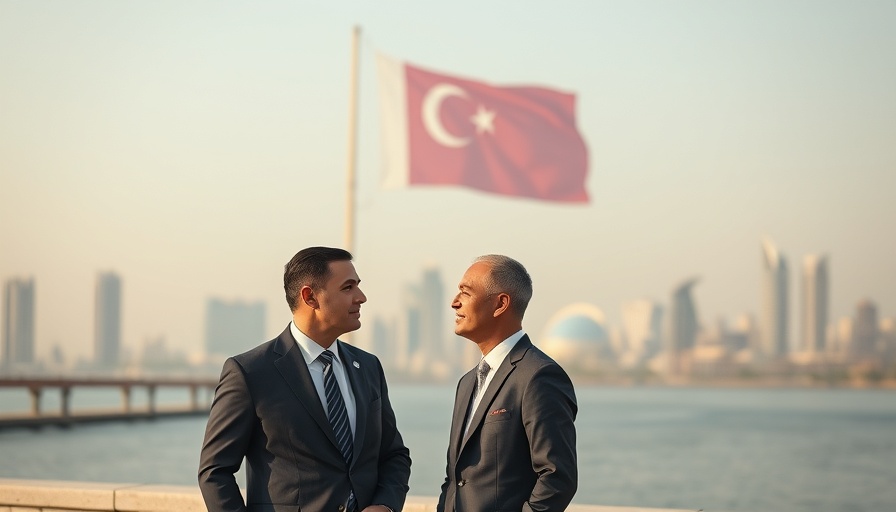
A Historic Announcement: France's Recognition of a Palestinian State
On July 24, 2025, French President Emmanuel Macron made headlines by declaring that France would recognize a Palestinian state. This announcement, conveyed through his social media platform X, was grounded in a commitment to achieving a "just and lasting peace in the Middle East." As this historical event unfolds, numerous voices—spanning the fields of politics, religion, and social justice—offer insights into its significance.
What This Means for Global Diplomacy
Macron's pronouncement signals a potentially transformative shift in international relations, particularly within the context of Christian engagement with Israel and Palestine. Many global leaders have discussed the Israeli-Palestinian conflict, but very few have taken such a decisive stand regarding Palestinian statehood. The French leader’s commitment could pave the way for more European nations to follow suit, reinforcing the idea that true peace hinges upon the recognition of both peoples' rights to sovereignty.
The Intersection of Faith and Politics
This announcement is especially pertinent for Christians who are increasingly called to engage in humanitarian efforts and interfaith dialogue. As policymakers grapple with complex geopolitical realities, the questions of morality and faith come to the forefront. The decision to recognize a Palestinian state invites believers to consider how they interpret scripture in light of current events unfolding in the Holy Land.
Reactions from Diverse Communities
The acknowledgment of a Palestinian state has generated a wide array of responses. Many social justice advocates hail it as a significant step towards a more equitable future, while others express concern about its implications for Israel's security. Within church communities, believers may feel a tension between advocating for peace and standing with Israel. This tension showcases the complexities of faith in action—highlighting a need for open dialogue and mutual understanding.
Challenges Ahead: Navigating Public Opinion
Macron’s declaration stems from a history marred by decades of conflict, raising critical questions about the sustainability of this recognition. How will it affect local communities? Many within Israel fear that fulfilling Palestinian aspirations could lead to increased tensions. For Christian communities, particularly those supporting interfaith efforts, this serves as a moment to evaluate their approach to advocacy.
Reflecting on the Path Forward: Practical Insights
In light of this announcement, it's essential for globally aware Christians and mission-minded individuals to engage thoughtfully with current events. Here are a few ways to think ahead:
- Stay Informed: Follow news from both Palestinian and Israeli perspectives to understand the complexities.
- Engage in Dialogue: Participate in discussions within your community about the implications of this recognition.
- Support Humanitarian Efforts: Consider supporting organizations that promote peace and aid in the region.
Conclusion: A Call to Action
As Christians passionate about justice and humanitarian issues, it’s important to reflect on what France's recognition of a Palestinian state means for our faith and advocacy. This historic moment presents us with an opportunity to engage in deeper interfaith dialogues, advocate for peaceful relations, and support initiatives that foster understanding and cooperation. Together, let’s work towards a future where all people can coexist with dignity and respect, following the teachings of compassion at the heart of our faith.
 Add Row
Add Row  Add
Add 








Write A Comment